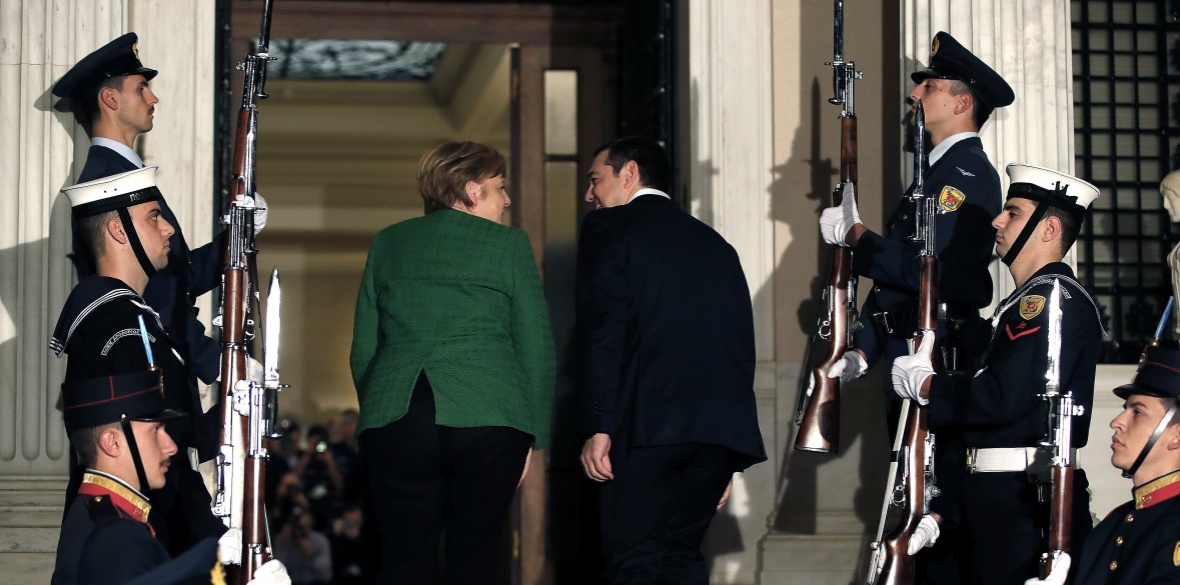This is the last article you can read this month
You can read more article this month
You can read more articles this month
Sorry your limit is up for this month
Reset on:
Please help support the Morning Star by subscribing here
AUTHORITIES banned demonstrations and locked down central Athens, closing off streets and shuttering underground stations today as German Chancellor Angela Merkel flew in for talks with Prime Minister Alexis Tsipras.
Thousands of police officers were deployed and police helicopters and drones were due to patrol the skies until Ms Merkel’s departure, with Greece’s Syriza government fearing unrest because of Germany’s association with the three infamous “memoranda” — formally “economic adjustment packages” — that saw Greece sell off its public assets, slash pay and pensions and remove collective bargaining rights from workers in return for “bailouts” that gave its government money to repay international creditors.
Though the memoranda were officially the work of the European Union, European Central Bank and International Monetary Fund, Germany was instrumental in drawing up the terms and took a more inflexible stance than other EU countries or the IMF over debt relief and required spending reductions.
The result saw the Greek economy shrink by over a quarter, rampant unemployment and poverty and the collapse of public services.
University of the Peloponnese professor Dimitris P Skalkos says the attack on collective bargaining “failed to meet the policy objectives pursued” since the “dynamics of employment growth and the reduction of unemployment are weak. Wages have fallen to extremely low levels, contributing to the intensification of in-work poverty, while productivity gains have been marginal.”
But Ms Merkel defended the treatment in the Greek Kathimerini newspaper, saying that while “the last few years were very difficult for many people in Greece,” the EU had “shown its solidarity with its three aid packages and supported Greece in its course of reforms towards fiscal and economic stability.”
Mr Tsipras faces a possible confidence vote if Syriza’s junior coalition partner Anel makes good on its promise to walk out over a bill that would end a dispute over the name of the former Yugoslavian republic of Macedonia, under which Greece would agree to call it North Macedonia.
Greek nationalists oppose the designation, which they regard as prejudicial to the status of Greek Macedonia. Mr Tsipras has vowed to head up a minority government if his coalition falls.











